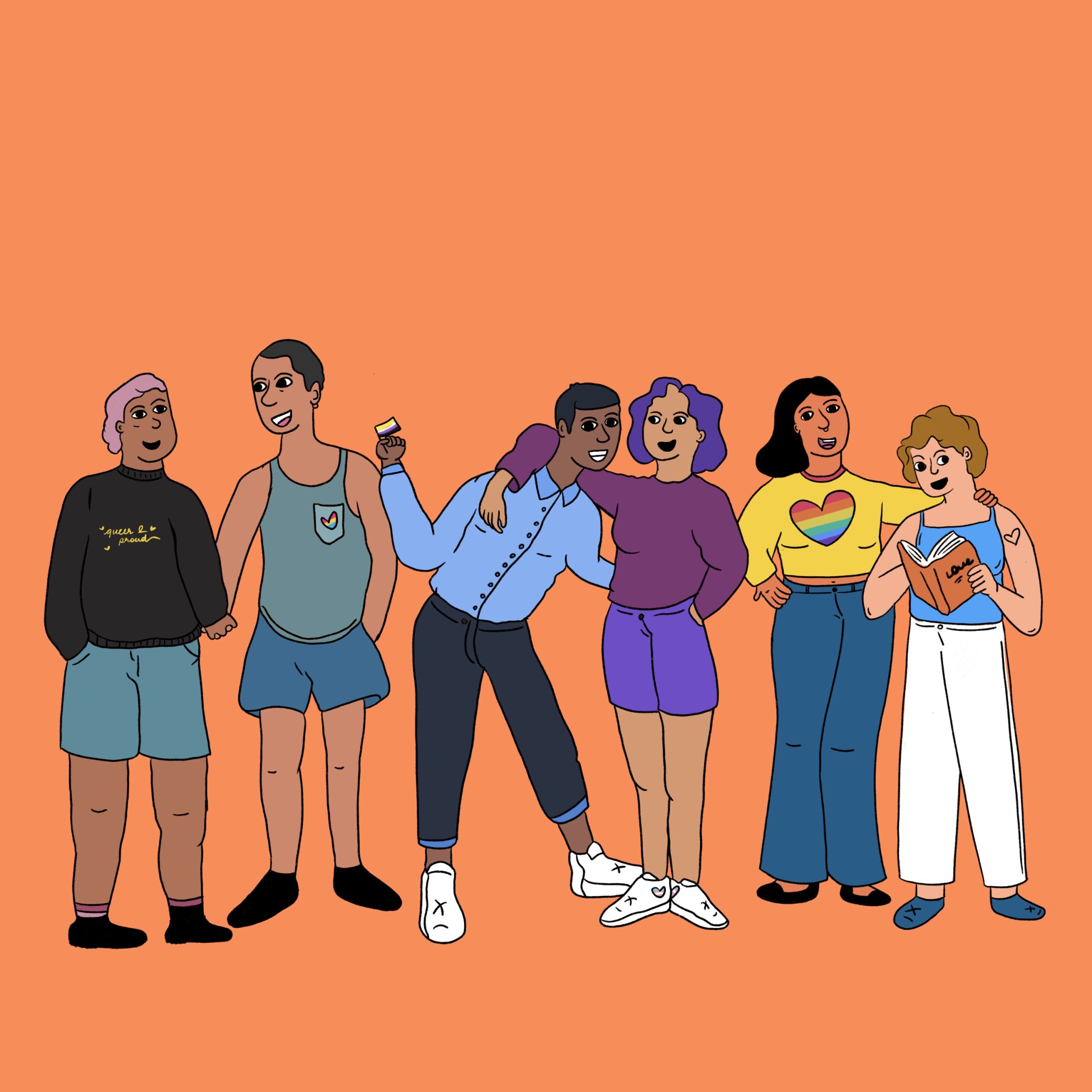Transgender Awareness Week runs from 13-19 November each year and is a one-week awareness and celebration event. The week is significant not only because it raises the visibility of trans and gender diverse people nationally and globally, but also because it promotes connection to the issues affecting trans and gender diverse communities, amplifies trans people’s voices and experiences, and importantly, brings attention to issues of prejudice, discrimination, and violence inflicted on trans and gender diverse people.
While the week has its roots in trans communities and has gone on to be embraced by the broader LGBTIQA+ community, it is now observed in many workplaces across the social sector and beyond. However the LGBT community, trans and gender-diverse people continue to face marginalization and discrimination in the form of transphobia and transmisogyny in the workplace on a daily basis, which only amplifies the harsh truth that India still struggles with the basics of inclusion; communication being the major one. According to a 2016 survey by Indian LGBT Workplace Climate, it was found that only 25 to 28% of people were out to colleagues and managers.
Also Read: Language As A Force Of Change: 5 Developments That Impacted Public Discourse On Queer Rights
Vandana S. (he/she/they) was forced to come out at their workplace after being misgendered due to the usage of pronouns. This incident dates back to October 2021 when they were working for a Unicorn start-up. One day, they nonchalantly added their pronouns (She/They) to their email signature, which weren’t their preferred pronouns (She/He/They), however, they skipped the ‘He’ to escape the enbyphobic questions and, because they were not very comfortable coming out. They explained.
“The Senior Director called me to his cabin and asked me to remove the pronouns and said ‘Why do you want to keep unnecessary things in your email signature’ and then explicitly asked me to remove it, I was too overwhelmed to ask why and just said but this is just to be inclusive and respectful to people from the LGBTQIA+ community and it quickly escalated to me explaining pronouns to him and then he started asking extremely enbyphobic/transphobic questions to me, which led me struggling to even work six more months in that organisation and ultimately leaving.” they explained.

In recent years, language and the way we communicate have undergone a massive refurbishment and the usage of pronouns in Indian society is a part of that metamorphosis. There are a plethora of pronouns that one can come across and use, and they can fluctuate with time. On social media, one can often come across pronouns such as “he/him, she/her, they/them” “he/she” or “she/they”.
Due to wider usage, many have found a language of articulation through which they can express what they are experiencing and by publicly displaying their pronouns they are able to bridge the gap between how the world sees them, and how they see and feel about themselves, which for many is a never-ending battle. With DEI (Diversity, Equity and Inclusion) becoming the new buzzword within the corporate workplace, we have been seeing swirls of change. Certain small but significant efforts made by various corporations deserve to be recognized and applauded. Despite this, many people persist to suffer as a result of how their identity and pronouns are viewed and mocked at work.
“Truth be told, beyond HR policies and professional decorum, there is a great business case for DE&I as well. Ensuring people who are pushed to the margins are brought to the center stage of your people and go-to-market policy makes people believe that you are willing to look beyond the obvious and go the extra mile,” says Harish Iyer, a DE&I champion and the Impleader in the section 377 case.
Also Read: A Struggle Through Labels: Journey Towards Being Queer
While all forms of transphobia must be condemned, it is critical to recognize that not all forms of transphobia are the same. Dushyant Kumar (he/they) navigates their identity online. “The problem which folks with specific preferred pronouns face is misgendering which roots from the assumptions society makes regarding gender as per the way they are brought up through the social conditioning of gender and gender roles. This also in turn enables dysphoria into trans and enby folks as they identify as ones who live outside the binary and/or the biological essentialist concept of gender based on genitals,” they explained.

The importance of language and communication for the queer community plays a crucial role because it affects them on a daily basis. Mx. Ria Sharma says. “Pronouns gave me a space for healing through acutely low self-worth and dysphoria. The correct use of pronouns helped me recognize the uniqueness of identities among people and why being sensitive to that can mean so much in their lives. To many, this difference may be insignificant. But it’s a very important distinction indeed.“
To fix gender assumptions it is necessary to strip off gender roles by bringing into practice a non-judgmental attitude, usage of gender-neutral language, and combating patriarchy by not gendering lifestyle. Hopefully, one day, it will all become commonplace and widely accepted. Beyond Transgender Awareness Week, the organisations in which we work and the communities we are part of should contribute to the inclusion of trans and gender-diverse people through respect and the pursuit of equity. Creating cultures of belonging necessitates ongoing care, attention and support that should be embedded in policies and strategies. The reward is a thriving environment in which everyone can flourish and meaningful change can be made.





